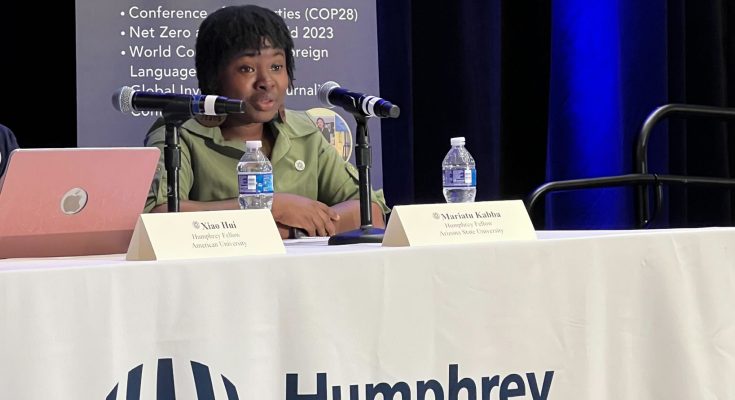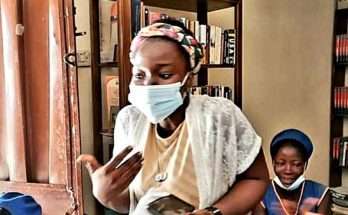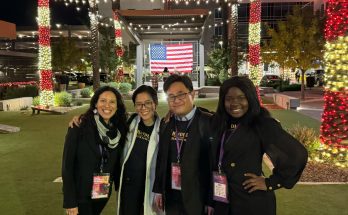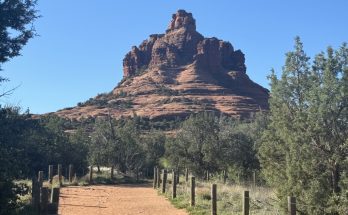The atmosphere inside the conference room at Hilton Hotel Washington DC carried an overwhelming feeling. As I shared my experience as a journalist cum gender activist in my native Sierra Leone, I could feel the collective energy in the room.
Here, thousands of miles away from home, the stories of strength and purpose, about resilient women and girls I worked with, were resonating deeply with this global audience. As I wrapped up my speech, a male participant in the audience asked me a poignant question: “As a man, how can I start supporting my sisters and other women in my country?”
He was one of the 150 fellows attending the 2023/24 Hubert Humphrey Fellowship Global Leadership Forum (GLF) in Washington, DC where I was privileged to be among the speakers. My just-finished talk focused on effective collaboration across various sectors – media, government, civil society, nonprofits, and the masses – not only to protect human rights but particularly to uplift the plight of women and girls. It struck a chord.
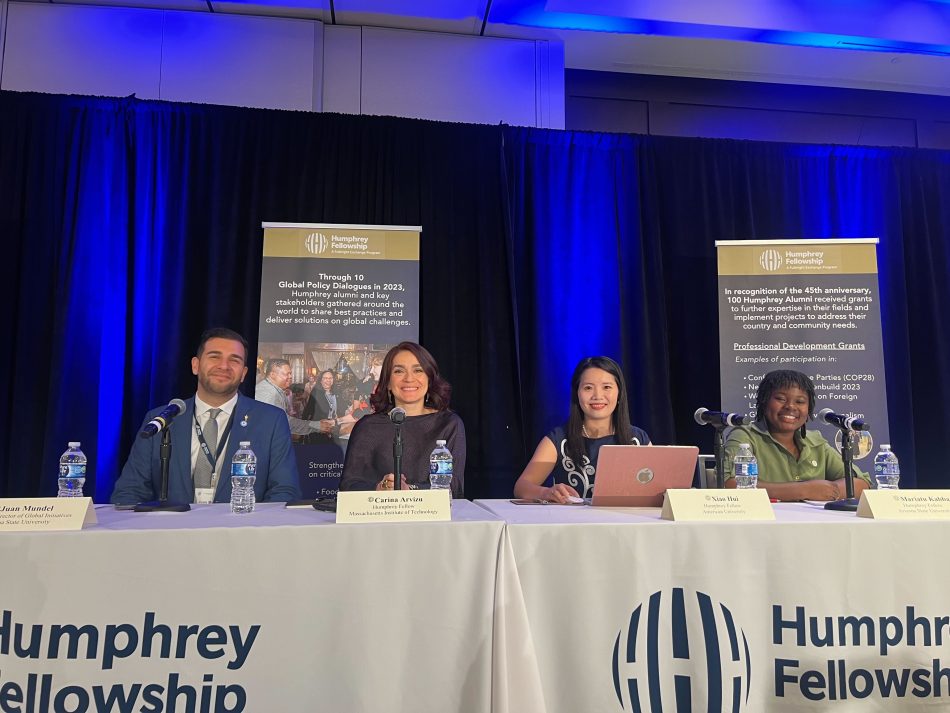
“Start by giving the same level of opportunity you give to the boy child, to the girl child, change the perspective about the roles and abilities of girls and women around you,” I volunteered my response.
The gist of my response was the importance of promoting women’s global leadership and breaking down barriers to ‘C-Suite’ roles. As I learned while in my academic journey at Arizona State University (ASU), C-Suite jobs refer to the top-tier jobs in the country.
I was delighted to see, already, a shift in perspectives taking place evidenced by this fellow’s question and the general reaction. Some members of the audience, too, approached me after the session to learn more about how they could be better allies in the fight for gender equality.
It was overwhelming. The questions were thoughtful, probing, and indicative of the collective commitment in the room to drive positive change. As I answered each query, I felt a renewed sense of purpose. This was not just a moment in time; it was a catalyst for a movement.
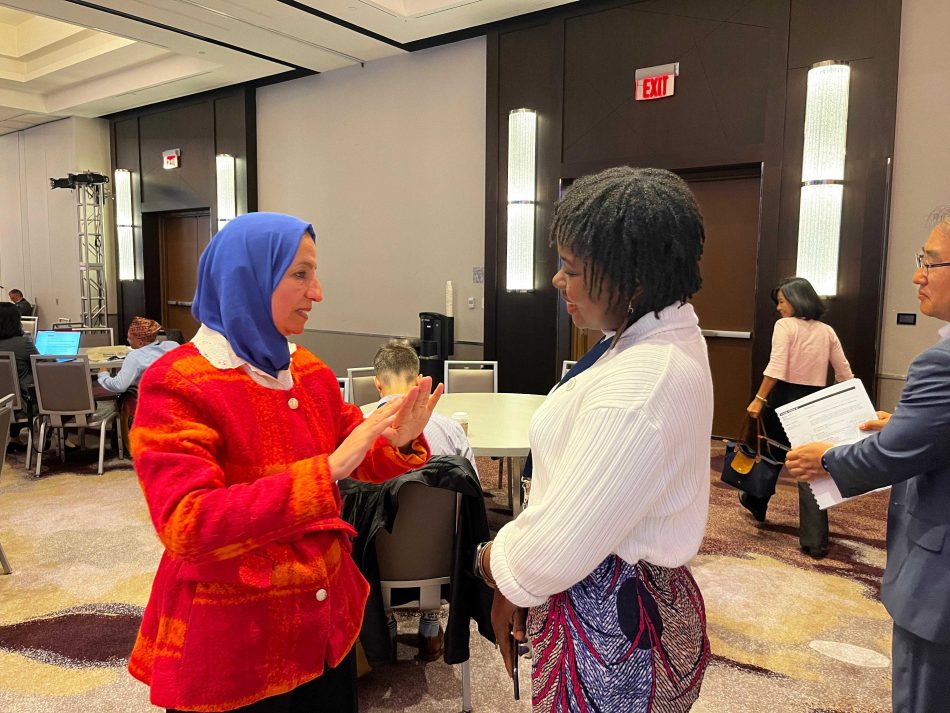
But as I sat down and soaked it all, I also knew this little girl who had overcome great obstacles to be named a recipient of this prestigious fellowship that enabled me to attend the conference was graciously chosen.
I was also overwhelmed by a sense of gratitude. First to my creator for the priceless blessings including life, the talents, and gifts that took me to this grand stage, my beloved motherland Sierra Leone for nurturing me; the US taxpayer for footing the bills of my stay in the United States and then my program managers and coordinators at the ASU—Juan Mundel, Julia Wallace, Adrienne Spencer—whose incredible work; coaching, motivational and all manner of support had turned me from a rough diamond into shining one.
But then it hit me, despite the ovation, despite the nodding heads, the work of women, in my country, or anywhere was not done. There are many glass ceilings out there to be broken, according to the UN Women-IPU Women in Politics 2023 Map, just 11% of countries in the world have a female head of state. Among those yet to break this glass ceiling is the United States, the very shining light of democracy across the world.
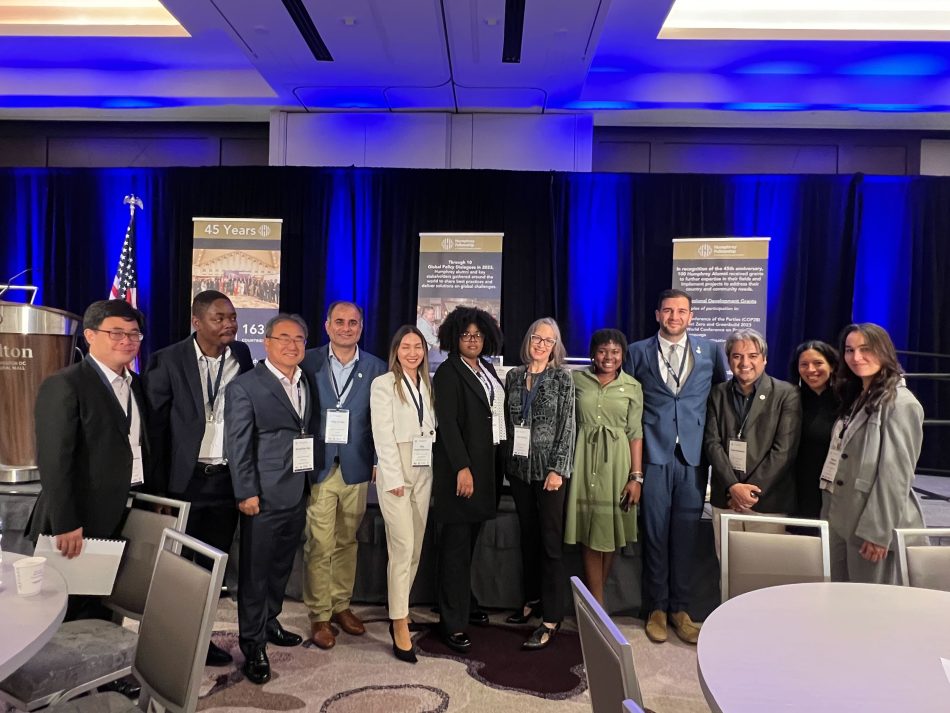
Looking back from where I came from, a country of some 8 million people with women constituting 52% but are disproportionally represented in politics and other leadership roles. Just a meager 12% of all leadership and political roles are occupied by women. A recent law has put the quota at 30 percent but more work needs to be done to actualize this pipedream.

